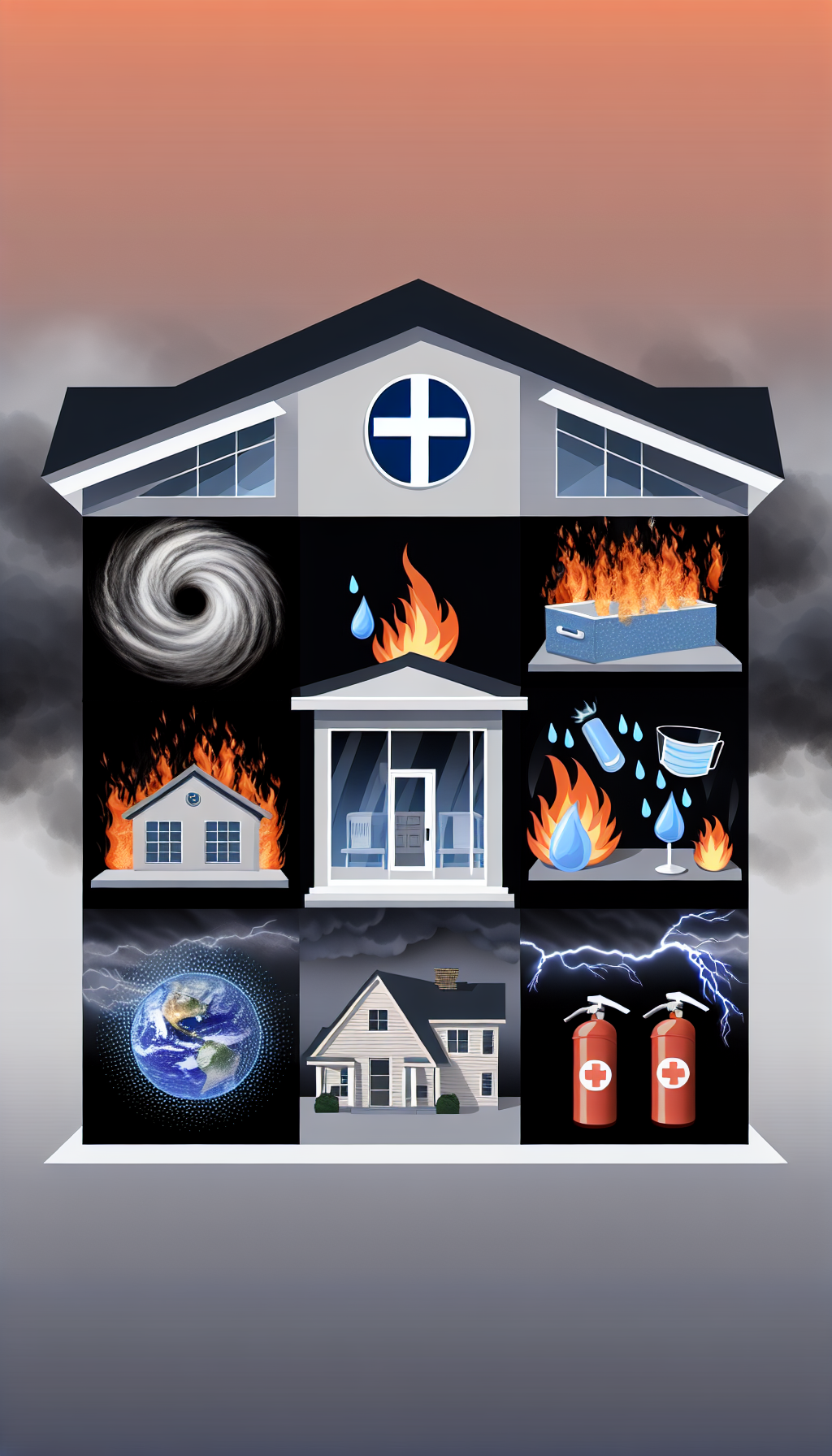
Welcome to a guide on the most likely disaster scenarios to prepare for! You never know when a disaster may strike, so it’s important to be prepared for a variety of situations. Whether it’s a natural disaster like a hurricane or an unexpected event like a power outage, having a plan in place can make all the difference when it comes to staying safe and secure. Let’s explore some of the most common disaster scenarios and how you can best prepare for them. What Are The Most Likely Disaster Scenarios To Prepare For?
Have you ever wondered what disaster scenarios you should be prepared for? From natural disasters like hurricanes and earthquakes to human-caused emergencies such as fires and power outages, being ready for the unexpected is crucial. In this article, we will explore the most likely disaster scenarios and provide you with tips on how to prepare for them. So, let’s dive in and get you ready for whatever may come your way!
Natural Disasters
Natural disasters can strike at any moment, leaving devastation in their wake. From hurricanes and tornadoes to earthquakes and wildfires, it’s essential to be prepared for these events. Make sure you have a plan in place for each type of disaster, including evacuation routes, emergency supplies, and communication methods. Stay informed about potential threats in your area and take proactive steps to protect yourself and your loved ones.
Hurricane
Hurricanes are powerful storms that can cause widespread destruction, including strong winds, heavy rainfall, and storm surges. If you live in a hurricane-prone area, it’s essential to have a hurricane preparedness plan in place. Stock up on supplies like non-perishable food, water, medications, and batteries. Board up windows and doors, secure outdoor objects, and have a communication plan with your family. Stay tuned to local news and weather alerts for updates on the storm’s path and potential impact.
Earthquake
Earthquakes can strike without warning, causing buildings to shake and collapse, and triggering landslides and tsunamis. If you live in an earthquake-prone area, make sure your home is structurally sound and anchored to its foundation. Establish an emergency kit with essentials like food, water, first aid supplies, and a flashlight. Practice drop, cover, and hold on drills with your family to prepare for the shaking. Secure heavy furniture and appliances to prevent them from falling during an earthquake.
Human-Caused Emergencies
In addition to natural disasters, human-caused emergencies like fires, power outages, and acts of terrorism pose significant risks to lives and property. Knowing how to respond to these scenarios can make a crucial difference in your safety and well-being. Stay informed about potential threats in your community and take steps to mitigate risks before they occur.
Fire
Fires can start suddenly and spread rapidly, putting lives and property in danger. It’s crucial to have a fire safety plan in place to protect yourself and your loved ones. Install smoke alarms in your home and test them regularly. Create a fire evacuation plan with multiple escape routes and a designated meeting place. Teach your family members how to use a fire extinguisher and practice fire drills to ensure everyone knows what to do in an emergency.
Power Outage
Power outages can occur due to severe weather, equipment failure, or grid overloads, leaving you without electricity for an extended period. To prepare for a power outage, have a backup generator or alternative power source on hand to keep essential appliances running. Stock up on candles, batteries, flashlights, and non-perishable food items. Keep your mobile devices charged and have a communication plan in place with your family and neighbors. Limit the opening of the refrigerator and freezer to preserve perishable items during a power outage.
Pandemics
The recent COVID-19 pandemic has highlighted the importance of being prepared for infectious disease outbreaks. While pandemics are less predictable than natural disasters, taking proactive steps to protect yourself and others can help mitigate the spread of disease. Stay informed about public health guidelines, practice good hygiene habits, and get vaccinated against preventable diseases. Have a supply of face masks, hand sanitizer, and disinfectants on hand for personal protection.
Emergency Supplies Checklist
To help you prepare for potential disaster scenarios, here is a checklist of essential emergency supplies to have on hand:
- Water: one gallon per person per day for at least three days
- Non-perishable food: a three-day supply of canned goods, granola bars, and dried fruits
- Medications: a week’s supply of prescription medications and basic first aid supplies
- Flashlight: with extra batteries or a hand-cranked flashlight
- Battery-powered or hand-cranked radio: for receiving emergency alerts and information
- Personal hygiene items: including toiletries, sanitation supplies, and feminine hygiene products
- Cash: in small bills for emergency purchases
- Important documents: such as identification, insurance policies, and contact information
By having these essential supplies on hand, you can be better prepared to face disaster scenarios and protect yourself and your loved ones.
Conclusion
In conclusion, being prepared for disaster scenarios is essential to ensure your safety and well-being in times of crisis. By understanding the most likely threats in your area and having a comprehensive emergency plan in place, you can minimize risks and respond effectively to emergencies. Stay informed, stay prepared, and stay safe! Remember, it’s better to be over-prepared than caught off guard when disaster strikes. So take the necessary steps today to protect yourself and your family tomorrow. Stay safe, stay informed, and stay prepared!
